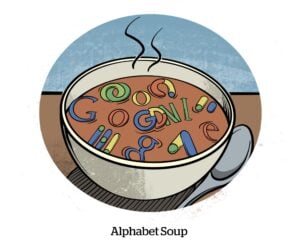Agency holding companies have spent $12 billion on data assets over the past five years but have yet to successfully deploy those assets at their creative agencies, according to a Forrester report released Monday.
“It’s still very much a media proposition,” said Jay Pattisall, Forrester analyst and author of the report. “[Creative] seems to be an obstacle.”
The report evaluates data platforms at each of the big six holding companies, including Omnicom’s Omni, IPG’s AMP, Publicis’ PeopleCloud, Dentsu’s M1, Havas’ Converged and MDC Partners’ Alchemy.
Forrester found that each platform can effectively reconcile multiple data sets to develop and activate better audience targeting for clients. But that capability falls short with creative execution. Omni is the only tool that has a specific use case for “creative inspiration,” which pulls in culture and trend data to help form creative ideas.
Getting creatives to extract insights and incorporate data into their process is a challenge.
“Media agencies are accustomed to this type of information,” Pattisall said. “The skill set to turn audience data into a human-centric truth is yet to develop inside of the agencies.”
While some traditional creatives are resistant to using data, slow adoption is mainly due to difficulties in translating data into insights that creatives can understand. If creatives are using these platforms at all, it’s usually in a new business pitch, where incentives between agencies are better aligned.
“There’s a willingness to suspend some of the personal dynamics and simply do the work,” Pattisall said.
Overall, holding companies haven’t seized the opportunity for these platforms to deliver much more tailored and personalized messaging to specific audiences.
“The real opportunity is to take what’s been done for paid media channels and apply this type of insight to the creative development process,” Pattisall said.
But I have a DMP…
While the report is not a ranking, it found that M1 and Omni are the most scaled platforms, with 3,000 and 4,000 employees logged on across Dentsu and Omnicom agencies, respectively. Converged is new and playing catch-up at Havas, while Alchemy has only recently taken center stage at MDC Partners’ new data, technology and media network.
IPG’s AMP platform has been bolstered by Acxiom data and talent, which are “absolutely playing a role” in how data is ingested, cleaned and assembled in the platform, Pattisall said. Publicis’ integration of Epsilon isn’t nearly as far along, and it’s still unclear how Epsilon’s ad tech assets fit with Publicis’ People Cloud.
And WPP has tech platforms and data assets across the group that could benefit from being packaged together more cohesively, Pattisall said.
While clients are aware that their agencies have these shiny new tools, Forrester found that they’re not exactly sure what the platforms do or how to differentiate between them.
“There was a lack of familiarity amongst marketers as to what the technology does,” Pattisall said.
Clients might wonder, for example, how agency data platforms are different from their own data management platforms (DMPs), which also identify audiences and deploy them in media activations. In fact, many agencies are selling their data platforms as an add-on tool to help clients get more use out of their DMPs, Pattisall said.
“Agencies would contend that clients have overspent on their DMP and are not efficiently using it, and that these platforms are a supplement to help enrich the client’s audiences,” he said.
IPG, Publicis and Merkle are hoping their proprietary data sets can differentiate them from the pack by giving clients a stronger understanding of their audiences. WPP, Omnicom, Havas and MDC are making a different bet on neutrality and keeping their platforms open-sourced.
Regardless of not really understanding what they do, clients are asking to see agency data platforms in new business pitches. Agency data platforms played a central role in pitches that moved $6 billion in client billings this year, according to Forrester.
Some clients are even bringing in their own data and analytics teams to better evaluate agency technology and discern one platform’s capabilities from another.
“It used to be cost, culture and capabilities were how clients selected a partner,” Pattisall said. “Now looking at data is an important piece of that.”
Be smart
While advertisers are constantly trying to find more precise ways to interact with consumers, they should be wary of becoming too dependent on an agency’s data platform.
Each agency assured Forrester that clients always own their data and the IDs created in their platforms. But since these platforms are new, it’s unclear how easy it is to port those IDs if a client wants to put their agency up for review.
“It’s hard to determine what type of loss could exist,” Pattisall said.
Marketers should also be aware of ongoing regulatory changes for consumer privacy and how that might affect their use of these tools.
“Clients tend to be more concerned about their own data infrastructure as it relates to regulation and privacy laws,” Pattisall said.











